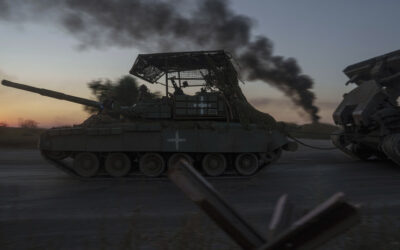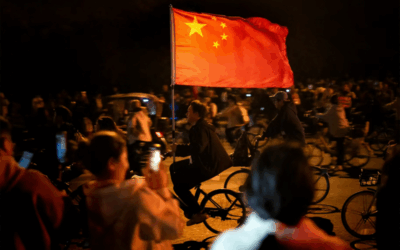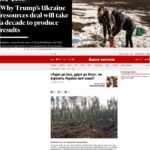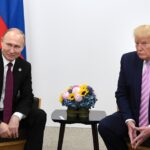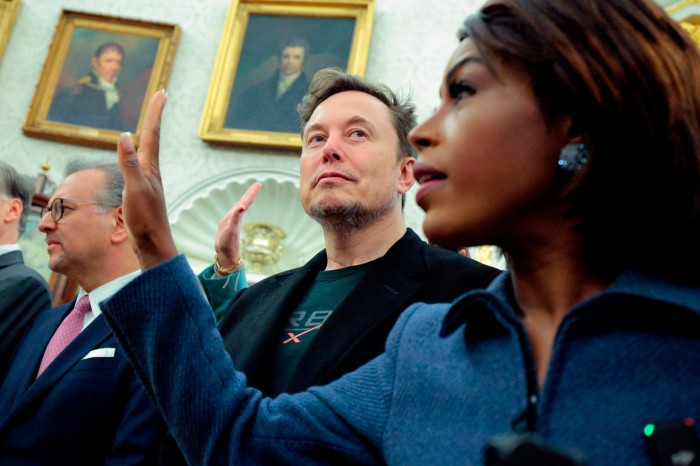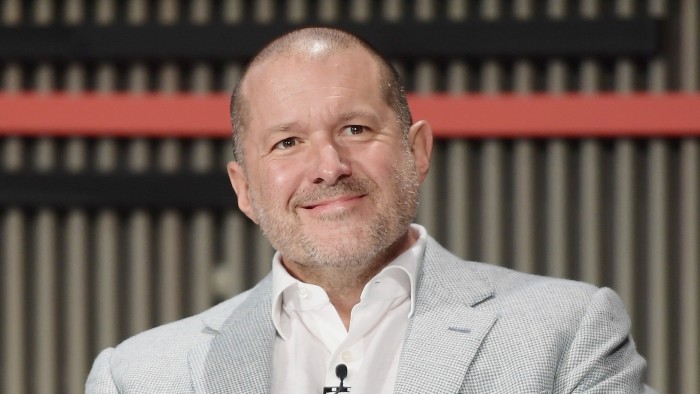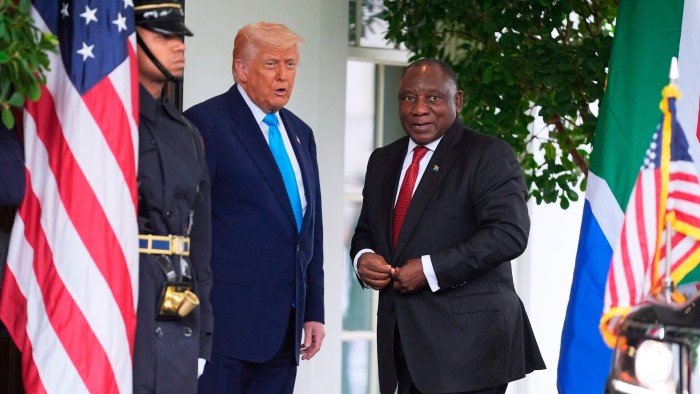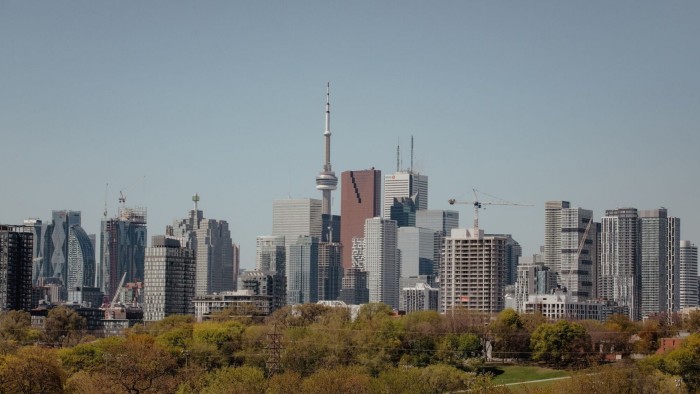Trump takes his trade war to the world’s tiniest nations
For a country he recently said “no one has ever heard of”, President Donald Trump singled out Lesotho in southern Africa for some pretty rough treatment in his long list of “reciprocal” tariffs.
The “mountain kingdom” of 2.3mn people, which is entirely surrounded by South Africa, was one of several countries, some among the poorest in the world, to be selected for the most punitive US tariffs.
Others included Nauru, the world’s third-smallest country, and Myanmar, which is coping with the devastating aftermath of last month’s huge earthquake, but whose exports to the US will now carry a tariff of 45 per cent.
Saint Pierre and Miquelon, the self-governing overseas territory of France in the north-western Atlantic Ocean, whose main export is processed crustaceans, also made the list. The French territory was slated for 50 per cent tariffs in the White House press release, though it was among several territories then not mentioned in the executive order.
Lesotho, known as “the denim capital of Africa”, has built a vibrant textile industry around tariff-free access to the US under the African Growth and Opportunity Act (Agoa), which was introduced in 2000 to catalyse development in poor countries.
Lesotho had a $235mn trade surplus with the US in 2024, according to the United States Trade Representative, with brands such as Levi’s, Wrangler, Footlocker and Timberland making up the bulk of those exports. All will now carry a 50 per cent tariff.
Mokhethi Shelile, Lesotho’s trade minister, was due to make an emergency address to parliament about the issue on Thursday afternoon.
Thabo Qeshi, head of the country’s main business chamber, said his phone had not stopped ringing since announcements of the tariffs came through. “Union workers, business people, transport workers — everyone is panicking,” he said. “That 50 per cent tariff means we might lose the whole textile industry.”
Textiles employed 30,000 people directly, Qeshi said, with many more thousands of indirect jobs in transport, food, retail and property. “People have been asking what can they do [to mitigate] the impact. But as you can see the president of the USA is completely unpredictable,” he said, adding that the government would send a delegation to Washington to make its concerns known.
Only last month, in his first speech to Congress, Trump referred to Lesotho, apparently for the first time, saying he would cut $8mn of aid to “promote LGBTQI+ in the African nation of Lesotho, which nobody has ever heard of”.

Many African countries that rely significantly on Agoa assume that it will not survive the tariff barrage. “Agoa is finished. It is dead in the water,” Alex Owino, an economist in Nairobi, told Africa Confidential.
Among other countries deemed to have been waging “unrelenting economic warfare” against the US — Trump’s justification for “reciprocal” tariffs — are the Falkland Islands, a British dependency that ships molluscs and non-frozen fillets to America in quantities apparently alarming enough to attract a 41 per cent tariff.
The Falklands exported $27.4mn of goods to the US in 2023, according to the Observatory of Economic Complexity, but only imported goods valued at $329,000, a third of which was accounted for by a single piece of broadcasting equipment.


The Pacific Ocean island of Nauru, whose economy has struggled since the rapid depletion of its deposits of fossilised bird droppings — a natural phosphate known as guano, which was once its main export — is also on the list, despite exporting only $1.16mn of goods to the US in 2023.
Exports to the US from Nauru, previously known as Pleasant Island, will now carry a 30 per cent tariff. Vatican City and Monaco, the only two countries smaller than Nauru, both escaped with the baseline 10 per cent tariff.
“I’ve never seen anyone calculate tariffs in this kind of way,” said Ha-Joon Chang, an economist at Soas in London, referring to what he called the “bizarre” formula that arrived at tariff figures based on each country’s 2024 trade deficit or surplus with the US.
He argued that simple dislike was the real justification for whacking a country like South Africa, which has repeatedly drawn the wrath of Trump and Elon Musk — the president’s South African-born cost-cutter-in-chief — with a 30 per cent tariff. “They hate South Africa. Just don’t try to pretend you have some economic logic behind this,” Chang said.
Officials in South Africa fear that the 30 per cent tariff could devastate the car and citrus fruit industry. That could destroy thousands of high-paying jobs in a country with alarming levels of unemployment.

Another African country in Trump’s crosshairs is Madagascar, one of the world’s poorest nations with a GDP per capita of just $506, according to the World Bank.
The island is the world’s main exporter of vanilla, a crop that needs to be hand-pollinated and only grows well in tropical countries. Madagascar exported $143mn worth of vanilla to the US in 2023, according to OEC, the second biggest item after nickel.
Chang, the Soas economist, said he doubted whether the US was aiming to create a vanilla industry of its own given the need for extremely cheap labour and America’s unsuitable climate. “I don’t really get it. There’s a lot of weird stuff here.”
